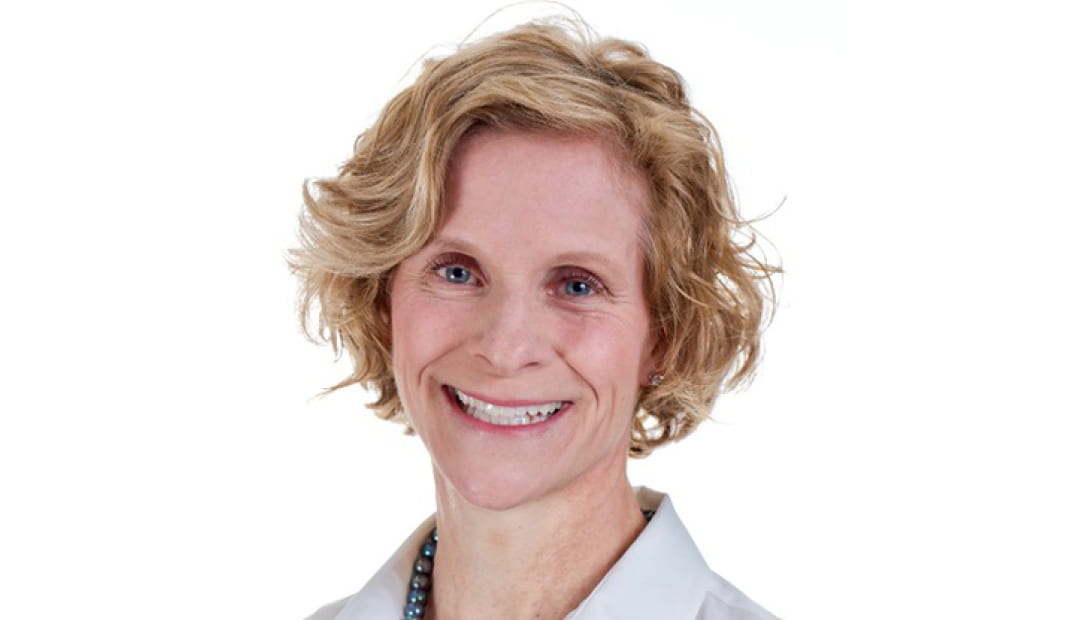This spring, GW Nursing is proud to highlight distinguished alumna, Valerie Strockbine, D.N.P., M.S.N., RN, a quality improvement team leader for regulatory and risk management at the Johns Hopkins Hospital in Baltimore, Maryland.
Dr. Strockbine entered the M.S.N. in Healthcare Quality program in August of 2014. During her time in the M.S.N program, she served as an active member of Sigma Theta Tau International Honor Society. Upon graduation in 2016, Dr. Strockbine furthered her career as a quality improvement team leader for pediatric surgery and a transfusion safety officer at the Johns Hopkins Hospital.
In 2016, she enrolled in the GW Nursing’s online Doctor of Nursing Practice program (D.N.P.) where she proposed a D.N.P. project to study whether clinical decision support (CDS) could help reduce unnecessary type and screen phlebotomy tests. Because of her research, in May of 2019, Dr. Strockbine received the Outstanding D.N.P. Scholarly Project award and the Outstanding Student Award in Research.
We caught up with Dr. Strockbine recently to see how she’s persevering with work, teaching, school and the unprecedented circumstances that 2020 has thrown our way.
Q. I see from your LinkedIn page that you have a degree in journalism…what drew you away from that pursuit to the field of nursing?
A. While studying journalism, I learned that you could find yourself in the middle of someone’s most vulnerable, painful point in life and not have the skillset to step in and help. I wanted to take an active role in comforting and healing people when they need it. Most of my clinical experience is in pediatric critical care and in this venue I was able to support both patients and families through their health crisis journey.
Q. What was the focus of your fellowship project with the Armstrong Institute for Patient Safety and Quality?
A. The focus of my fellowship project with the Armstrong Institute was to look at nursing’s role in reducing central line-associated bloodstream infection (CLABSI). Much work has been done on the insertion of central lines and the provider’s role, but it’s the nurses who maintain the line and apply infection prevention measures. Specifically, my work was on improving central line dressing changes by applying evidence-based best practices, the use of an observer-to-maintain technique, and use of a standardized dressing change kit. My organization’s infection control team has adopted and spread some of these strategies to other areas of the hospital, which has been especially rewarding.
Q. As a D.N.P. graduate, how have you infused your professional life with the lessons you learned in the program?
A. I think I apply the skills I gained from the D.N.P. program more often than I even realize! As a quality improvement team lead, I am constantly analyzing data to understand and define the problem, identifying opportunities for improvement, evaluating the literature and guidelines for best practices, and developing implementation strategies that address the problem and are feasible in the environment. I also apply many soft skills I learned along my D.N.P. journey, such as assembling and leading a team of relevant stakeholders, communicating the need for change, and empowering the team to put a change into action.
Q. After 20 years as an RN, how did you make the switch to Quality Improvement Team Leader and how did those 20 years of experience and/or your degrees prepare you for this role?
A. I spent the majority of my career at the bedside and was drawn to improving care as the science of safety was being applied in the healthcare industry. I have the good fortune to work at an organization that not only said they wanted to improve patient safety and care quality, but found the resources to do it. Part of this was the creation of the Armstrong Institute for Patient Safety and Quality, where I served as a patient safety fellow. The program, now called the Leadership Academy, was essentially an immersion program that taught foundational safety and quality skills that led me to formal education programs at GW Nursing. Having a frontline background allows me to understand several perspectives of the same issue and provides some ’street credibility’ with the clinical teams.
Q. What are you most proud of in your career?
A. This is a tough question to answer. During the clinical portion of my career, I am proud of being part of a team that literally made miracles happen at the bedside. Regarding the academic phase of my career, I am proud to have had my D.N.P. project published in a healthcare quality journal. And now as a quality team leader, I am excited to apply my expertise to improvement projects that span our health system. I would be remiss if I didn’t also mention how satisfying it was to assist my colleagues during the height of the COVID-19 crisis by monitoring correct use of personal protective equipment and the safe transport of COVID patients.
Q. How have you been able to make the greatest impact on the community that you serve?
A. While I work with teams that reach many of the different communities we serve, the greatest influence I had was with the implementation of a safety process that protects every patient who receives a blood transfusion from receiving the wrong type of blood. The project started in one hospital but when it’s value was realized by organizational leadership, it became a system-wide process change.
AUTHOR Pria McNeil

